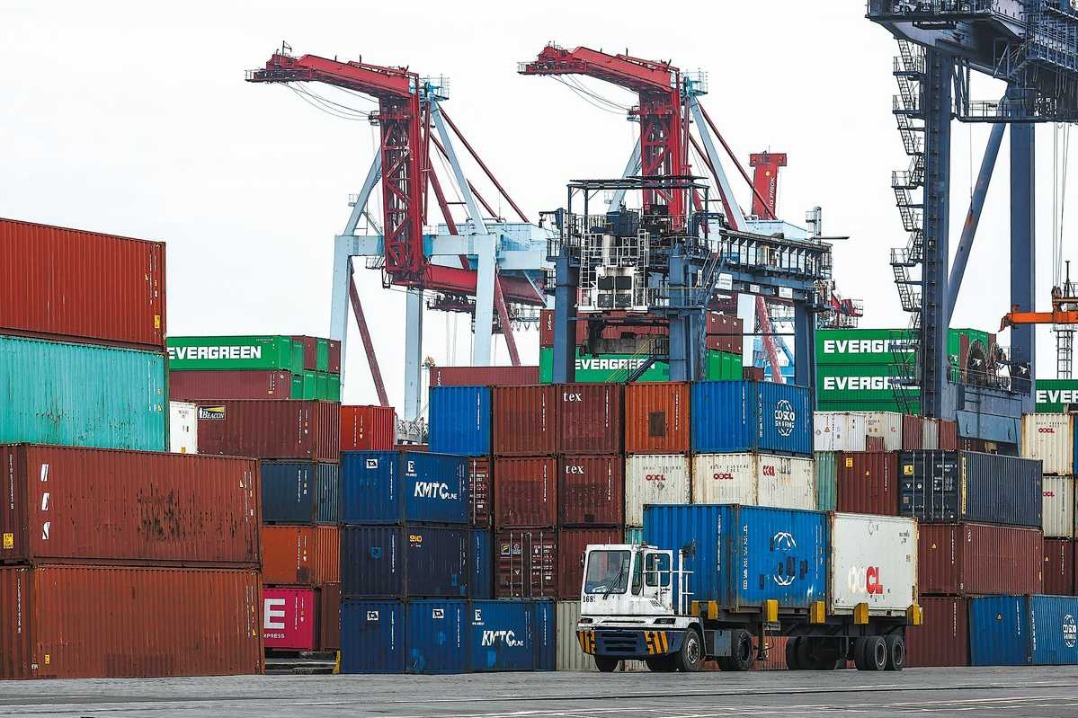Expert: China, Kazakhstan see partnership as way forward


China and Kazakhstan are poised to deepen their economic and technological collaboration through the Digital Silk Road, a key component of the Belt and Road Initiative, according to Timur Turlov, founder and CEO of Kazakhstan's Freedom Holding Corp, one of the nation's largest investment conglomerates.
"The Digital Silk Road, announced in a 2015 Chinese government white paper, has become a driving force for promoting e-commerce, digital infrastructure, and cross-border economic activities across participating nations," Turlov said in an interview with China Daily.
Kazakhstan's progressive telecommunications policies and investments in digital networks position the country as both a valuable contributor to and a beneficiary of this initiative, he noted.
Freedom Holding Corp, based in Almaty and registered in Nevada, United States, is a Nasdaq-listed financial services company operating in sectors including retail financial securities brokerage, securities trading, and investment banking. While its primary focus is on the US stock market, the company is also embedded in the markets of Central Asia, particularly Kazakhstan.
This unique positioning enables the company to leverage its expertise and contribute to fostering cross-border economic ties within the framework of the Digital Silk Road, Turlov said.
China's efforts to expand imports of high-quality Kazakh products and develop partnerships in e-commerce and the digital economy create promising growth opportunities, Turlov explained.
"Joint investments in fiber optics, 5G networks, and satellite communications could significantly strengthen the technological framework underpinning the digital aspirations of both nations," he said.
Kazakhstan's proximity to China and strong trade links make it an ideal partner in this evolving digital economy. "The digital economy offers a natural area of collaboration, where both nations can create substantial value," Turlov said.
He highlighted Kazakhstan's strategic location as a bridge between East and West, which enhances its role in the Digital Silk Road. Companies like Freedom Holding are already capitalizing on this position, exploring ways to expand into China's vast and innovative digital market.
"China's digital ecosystem is one of the most dynamic and sophisticated in the world," Turlov said. "For us, the key is to find niche opportunities, such as cross-border finance and international investment platforms, which align with our strengths and meet the needs of Chinese consumers."
Technological collaboration between the two countries holds vast potential, particularly in sectors like electric vehicles, renewable energy, and artificial intelligence. By combining China's advanced green technologies with Kazakhstan's sustainable development goals, Turlov believes joint projects could address global challenges while driving economic growth.
"Technological collaboration is essential," he said. "In Kazakhstan, we've built an ecosystem that integrates banking, investment services, and lifestyle platforms. Our experience shows how integrating services can foster trust and engagement, a model that could be adapted to China's market with the right partnerships."
Financial institutions like Freedom Holding are paving the way for secure cross-border investment options tailored to the needs of both Chinese and Kazakh investors. Turlov emphasized that partnerships with local banks and fintech platforms in China would be critical for meeting the unique preferences of Chinese consumers.
"These partnerships won't just strengthen economic ties; they will also build consumer trust and engagement," he said.
Turlov described the Digital Silk Road as more than a technological initiative. "It's a platform for economic transformation and cultural exchange," he said. By working together, China and Kazakhstan can tap into new markets, foster innovation, and strengthen their roles in the global digital economy.
"Our ultimate goal is to create a truly global ecosystem," Turlov said. "If we succeed in integrating our model into China's market, it will open doors to other regions such as Africa, Southeast Asia, and Latin America, where digital adoption and financial inclusion are gaining momentum."
He added this partnership has the potential to inspire similar initiatives among other BRI nations, setting the stage for a more connected and prosperous future. As digital technologies reshape the global landscape, Turlov said the cooperation between China and Kazakhstan could serve as a model for fostering sustainable growth and mutual benefit.






























